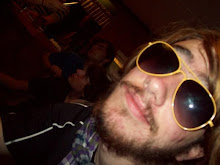Another dispute between religion and science during the scientific revolution was spurred by Diderot and his Encyclopedia. The encyclopedia is in essence a compendium of all knowledge. It contained definitions and explanations of basically everything, based on sensual observations and logic based investigations. The biased, negative opinion of religion held by Diderot and his collaborators laced the encyclopedia as is seen in full effect here "Religion serves as a pretext for this unjust tyranny which has the effect of making a man incapable of bearing with a way of thinking that differs from his own.". Needless to say this angered the church. Diderot's goal to create a complete work of all knowledge based on sensual observations began conflicting with Catholicism when, and only when it started becoming directly slander the church.
A second example of a modern dispute between religion and science would be whether or not to conduct embryonic stem cell research. Embryonic stem cells are thought to hold nearly limitless repairs for every kind of human tissue. The scientific way of looking at this issue is to interpret the four or five day old ball of cells can not live on it's own, and as such is not truly a living being; thus it is morally acceptable to destroy it for the purpose of creating cures for an already living functioning human being. The religious side would say that it is a living human life, whether or not it has developed yet or not doesn't matter, it simply is human life, and cannot therefore be killed, even in an effort to prevent (postpone) the deaths of other living humans.
What has changed (an extremely large amount, actually) is the general public's exposure, and socially expected norms. Where now, in general the public is hugely focused and dependant upon physical evidence, and sensual observations to prove something, before the enlightenment it would have been considered unnecessary to search any farther for a reason why something happened then God's will. We now live in a society that is hugely dominated by the scientific point of view, whereas during and before the scientific revolution and enlightenment society was largely on the religious side of the argument. This drastic shift can be attributed in it's entirety to the fact that for the most part people look back at the scientific revolution and enlightenment as a good change. If we were looking back at them as a bad set of events, I can almost guarantee that we would still be a highly religious society. Instead we live in a world where religion is discreetly looked down upon; and that hugely differentiates the debates between science and religion of now, and the past.
The large question still lingers; what is the correct way to find truth? Is science right; does someone find truth through their own bodies, or is religion correct in saying that the only real way to truth is to accept that something much greater then you will show you what is real? This is a question no human being will ever be able to fully, undebatabley be able to answer. Science advocates that truth is found through sensual observation, but how do you know that what you are sensing is what is real? A color blind person see's the world differently then everyone else. What if how all humans can interpret the world isn't actually how the world is? What if a humans senses, which science puts so much faith in, are telling your brain lies? On the other side of this is religion (which at least completely admits that it is based on faith), leaving an easily found feeling of never truly knowing for sure whether what you are supposed to accept as real, even though a human mind couldn't ever truly comprehend, is actually the truth. In order to not slip into that doubt, you must have one single quality. That quality is faith. There can only be one actual truth, but whatever way you lean towards, scientific, or religious, you need faith: be it in either your senses truly perceiving things correctly, or in a being your consciousness can't actually grasp. There is no way of ever truly knowing, all you can do is believe, all you can do is have faith.
